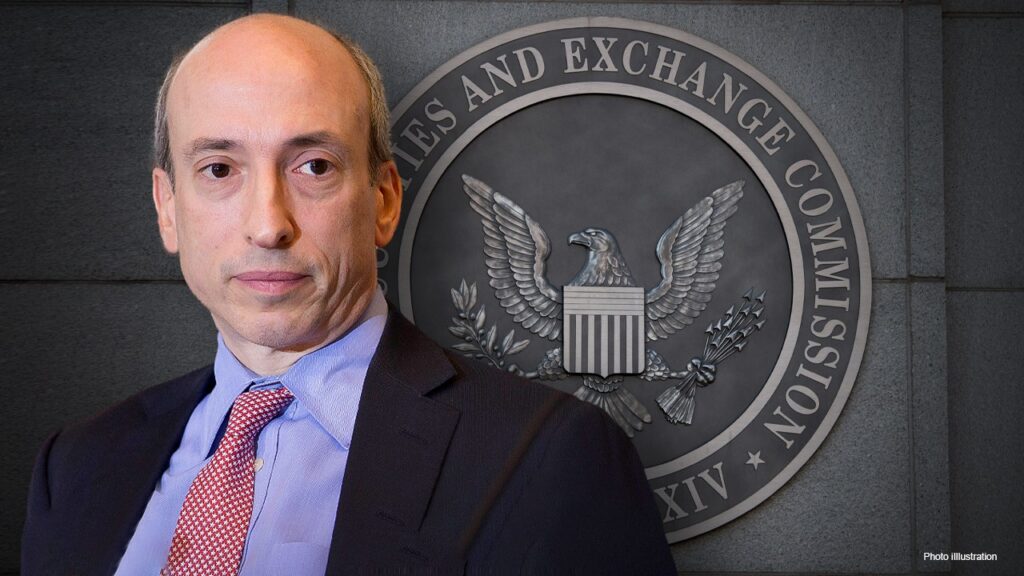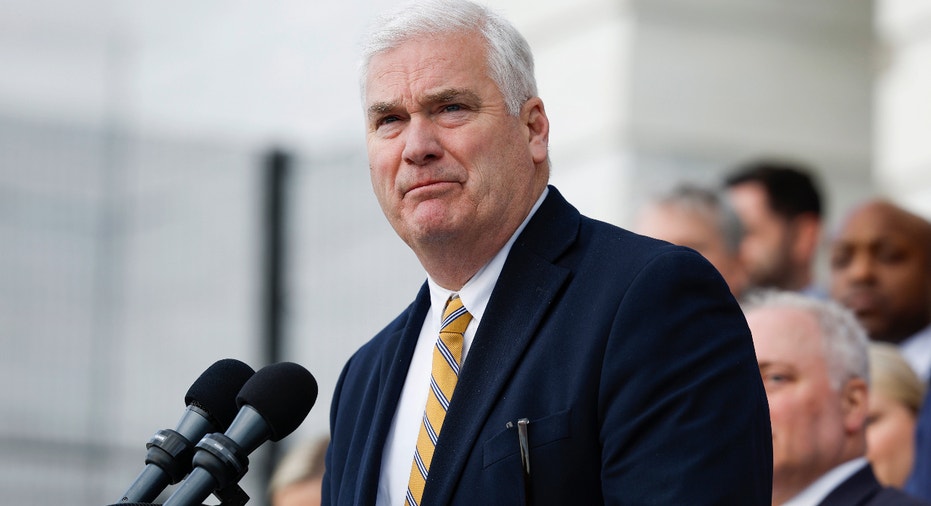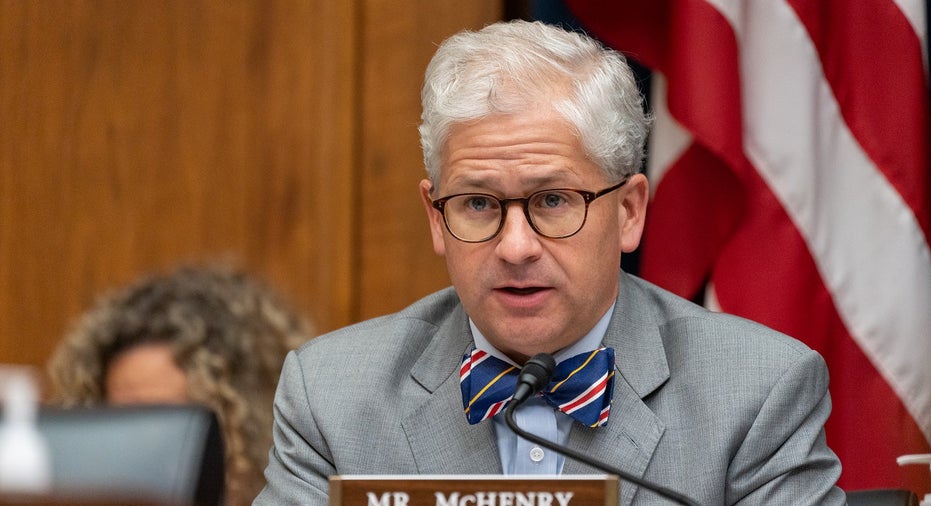Galaxy Digital CEO Michael Novogratz discusses presidential candidates’ views on cryptocurrency after it wasn’t mentioned during the Trump-Harris debate on “The Claman Countdown.”
Exclusive: House Majority Leader Tom Emmer and Rep. Patrick McHenry are seeking to clarify the Securities and Exchange Commission’s regulatory approach to a method of distributing crypto tokens known as “airdropping,” FOX Business has learned.
In a letter sent Tuesday to SEC Chairman Gary Gensler and viewed by FOX Business, Emmer, R-Minn., and McHenry, R-N.C., express concerns that the so-called crypto cop is engaging in a regulatory power grab by classifying some “airdrops” as unregistered securities.
“Under Chairman Gensler’s leadership, the SEC has put its finger on the scales and prevented Americans from shaping the next iteration of the internet,” Emmer said in a statement to FOX Business. “Airdrops play an important role in incentivizing participation in blockchain-based applications, which in turn contribute to the continued development, early governance, and ultimate decentralization of these networks.”
COINBASE SUES SEC AND FDIC FOR INFORMATION RELATED TO CRYPTOCURRENCY REGULATION
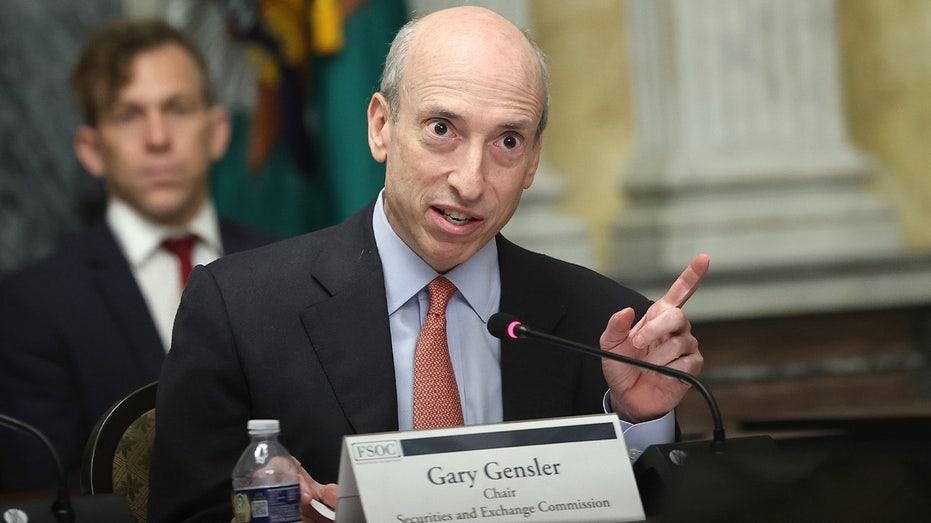
SEC Chairman Gary Gensler participates in a meeting of the Financial Stability Oversight Council at the U.S. Treasury on July 28, 2023, in Washington, DC. (Kevin Dietsch/Getty Images)
Airdropping involves a blockchain project developer sending free tokens directly to a cryptocurrency wallet to attract users to a platform, something industry proponents compare to loyalty rewards like airline miles or credit card points. While the SEC has not filed a lawsuit specifically targeting airdrops, it has raised the possibility in recent enforcement actions against cryptocurrency companies that, under certain circumstances, cryptocurrency airdrops could qualify as securities.
Gensler has testified before Congress that he believes most cryptocurrencies, with the exception of bitcoin and ethereum, are unregistered securities traded illegally. Under his leadership, the agency has launched a three-year regulatory crackdown on the $2 trillion digital asset industry. Critics of the SEC’s enforcement approach say the agency is too broad in its interpretation of the Howey test — the agency’s litmus test for determining whether assets are securities.
GRAYSCALE LAUNCHES FIRST XRP TRUST IN THE US, PAVERING THE WAY FOR A POTENTIAL ETF
Emmer and McHenry’s letter demands answers to five questions, including how the SEC distinguishes between rewards like airline miles and crypto tokens dropped by plane, as well as how the agency believes the Howey Test applies to free crypto tokens offered to users.
House Majority Leader Tom Emmer, R-Minn., speaks during an event celebrating 100 days of House Republican rule at the Capitol on April 17, 2023. | Getty Images
“We are concerned that poor enforcement of securities laws will prevent this technology from achieving decentralization and its full potential,” the lawmakers wrote.
Many blockchain developers use airdrops as a promotional tool to attract new users to their platforms or as a reward for early adopters of a new project. Token holders can use their tokens to gain governance rights, to interact or perform tasks on the platform, or to claim a stake in the future growth of the platform.
Recent enforcement actions have shown that certain types of airdrops could meet the criteria of an investment contract, a key factor in determining whether an asset is a security. They have also raised concerns that airdrops could be used to circumvent securities registration requirements.
“Given the SEC’s reluctance to establish a regulatory framework in the United States, developers have been forced to prevent Americans from claiming ownership of a digital asset in an airdrop,” Emmer and McHenry said in the letter. “This includes individuals who may have developed the network or otherwise contributed to its development.”
GET FOX BUSINESS ON THE GO BY CLICKING HERE
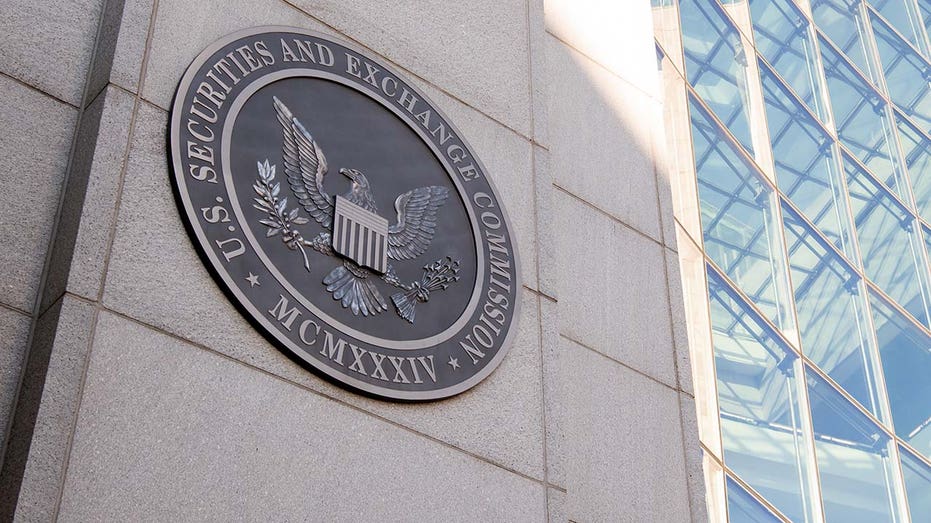
The headquarters of the Securities and Exchange Commission in Washington, DC, on January 28, 2021. (Saul Loeb/AFP via /Getty Images)
Proponents of airdrops, like Emmer and McHenry, argue that because users aren’t investing money in the tokens—they’re just receiving them for free—it doesn’t meet Howey’s “investment” test. It also may not meet the “common enterprise” test if the recipients of the tokens are simply using them for utilitarian purposes and don’t expect to profit from the developers’ efforts.
Lawmakers then suggest that by barring Americans from participating in the airdrops, the agency is preventing them from fully enjoying the benefits of blockchain technology.
“Given the approach the SEC has taken during your tenure as Chairman, the SEC has only ensured that the next iteration of the Internet is not designed by Americans or with American values, which is not in the best interests of our constituents,” Emmer and McHenry concluded in the letter, giving Gensler two weeks to respond.




